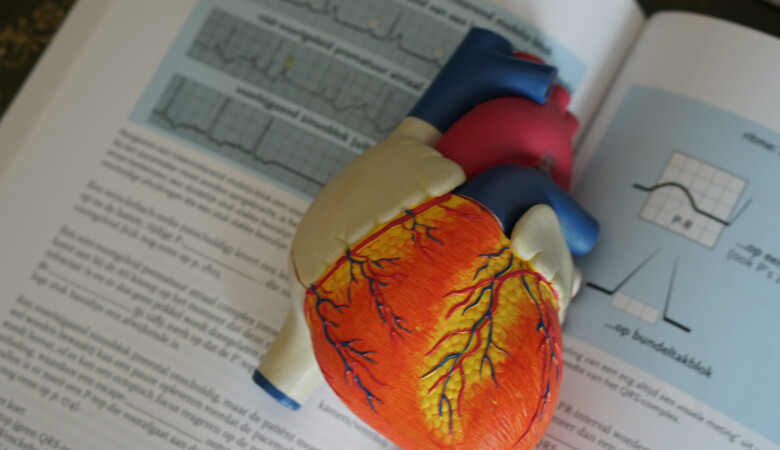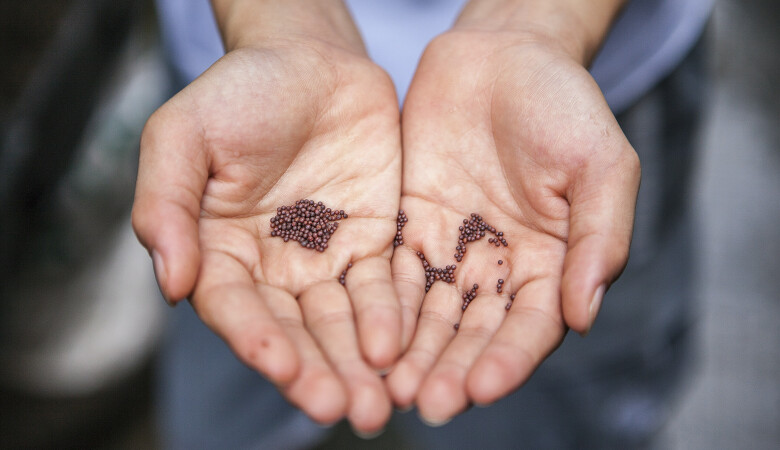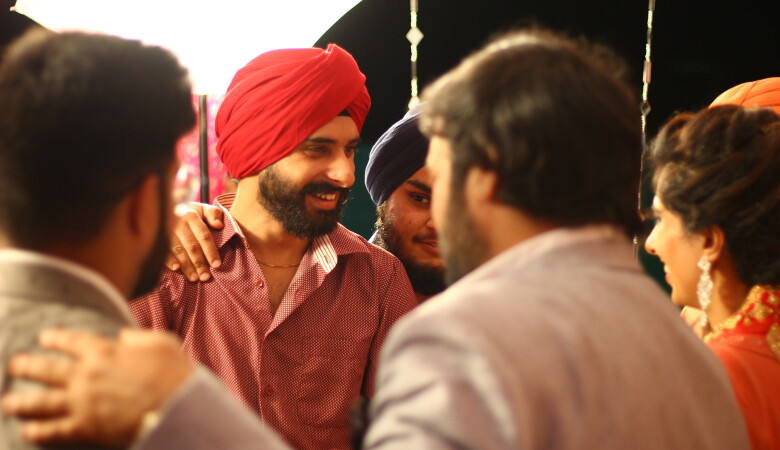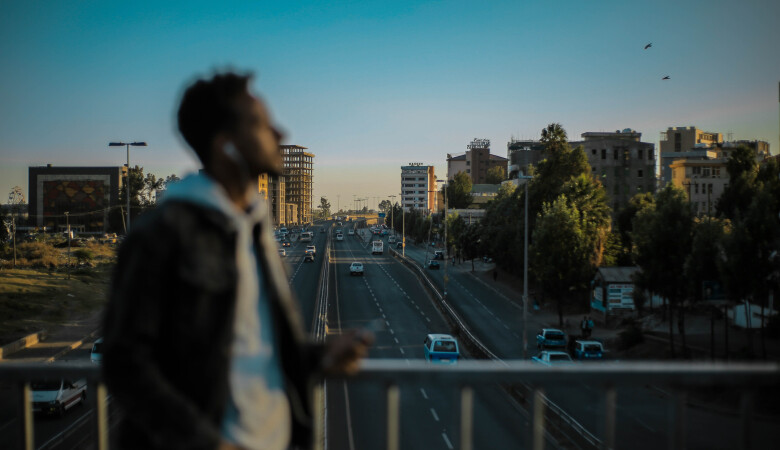Visions from Isaiah on Ministry of Mercy (Isaiah Sermon 22 of 80)
October 19, 2008 | Andy Davis
Isaiah 58:10-11
Brotherly Love, Evangelism, Missions
Pastor Andy Davis preaches a verse-by-verse expository sermon on Isaiah 58:10-11. The main subject of the sermon is the need for God's people to care for the needy as God does.
- SERMON TRANSCRIPT -
I. Introduction
I constantly marvel at the providence of God as He lines out the things that I get to preach on. It’s not an accident. Today I am preaching to you from the Book of Isaiah on ministry to the poor and needy, just having returned from Haiti, the neediest country in the western hemisphere. This will be my last sermon in the Book of Isaiah until further notice. When I preach to you next, it will be from the Gospel of Matthew, God willing. What I want to do today is just preach a topical sermon from texts in the Book of Isaiah on visions of mercy ministry and ministry to the poor and needy. I want to preach it as a challenge to each one of us to give generously and to live a life of sacrificial love to others. I can’t think of a better book in the Bible to do that from than the Book of Isaiah.
For me personally, I can’t think of a better time than today, this morning, having just come back from Haiti. The scenes of poverty in that country are overwhelming and devastating. Unforgettable. It’s my third trip there, and it just keeps deepening and expanding as I have visions in my mind. There’s a portion of the capital city of Port-au-Prince called the Cité Soleil. What a strange name, the city of the sun, because it’s a dark, poor place. There are all these temporary shelters built out of cardboard or wood with rusty corrugated metal roofs. There are children barely clad that are playing in puddles of muddy water or scooping some up in plastic pitchers and bringing it back into the city to do I have no idea what with. You see piles of garbage with people walking over them and picking out things that they find of some value and bringing them back into the city.
The whole country isn’t that poor. But the sights are unforgettable; the smells, the picture of poverty sitting on that community like a 900-pound gorilla and there’s nothing that they can do. I know the political history, the instability, the corruption, the wickedness of human government and of human sinfulness. You can’t put it all on the government because there’s just sin across the board that you see there, that’s brought that country to that level. The demonic element, voodoo, satanism, and darkness are pervasive. As I come back today to preach here at First Baptist Durham, my heart is moved and stirred with hope of the sense of the power of God. I have hope that God would anoint me, that He would sear my lips with a coal taken from the altar, that He’ll forgive me of my sins of selfishness, materialism, greed, loveless-ness, a lack of faith and fear, and all kinds of other sins that have hindered me from being fully useful to God and mercy ministry.
You remember how Isaiah had a vision of Christ seated on His throne, high and exalted, and he felt immediately his own sinfulness. He said, “Woe is me. I am ruined.” I feel that way as I look at the holiness of God, as I look at the love of Jesus Christ, the way He left that glorious throne and came to minister to us. I look inside my own heart of darkness, my own limitations as a Christian, showing what I’m used to, what I’m accustomed to. I just ask the Lord to forgive me and to free me so that I can minister to others better the rest of my life. And I know He will. He came to save me from sin. I know He’s going to save this church from the same thing. I don’t know what the future holds for our country. We may need to band together, economically, as never before. This is a good time for us to discover what it means to reach out to somebody who’s needy, to help them, and to not be selfish. So I’m trusting in God for that.
There’s one particular verse that moved me. You heard Fred powerfully read Isaiah 58:10. It says, “If you spend yourselves on behalf of the hungry and satisfy the needs of the oppressed, then your light will rise in the darkness, and your night will become like the noonday.” That’s the verse that’s going to be the focal point of our meditations together today. I believe that if we do this, God will bless this church as never before. We will be a light shining in a dark place. We will be a city built up on a hill for all the people around to see. No one lights a lamp and hides it under a bowl. God has lit a lamp in this church. He intends to put it up high in this community and to the ends of the earth that we might shine for His glory and for the alleviation of suffering. We could be a blessing in this world as Christ was. You’ve already heard the verse that Eric read, 2 Corinthians 8:9. “For you know the grace of our Lord Jesus Christ, that though he was rich, yet for your sakes he became poor, so that you through his poverty might become rich.” That’s what moves me today.
II. Isaiah’s Heart for the Poor
Isaiah’s Message a Burning Coal from the Altar
So we turn to the Book of Isaiah. I’m not going to urge that you follow along. I’m going to be moving through the book and picking out verses in which Isaiah reveals his heart for the poor and needy. You can look these verses up later. For me, this message, as I said, is like a burning coal from the altar, a coal of conviction and also of atonement, that we might be transformed by the word of God. Isaiah called on Judah and Jerusalem to deal honestly with their sinfulness, to face it head on, and so he told the truth. They were saturated in religiosity, the machinery of religion. The wheels and the gears were turning all the time in Isaiah’s day.
This is what the Lord said through the prophet Isaiah in Isaiah 1:13, “Stop bringing meaningless offerings! Your incense is detestable to me. New moons, sabbaths, and convocations – I cannot bear your evil assemblies.” They did all of these religious things, but God was displeased because their hearts were far from God. He was displeased with their hypocrisy. He was displeased with their lack of compassion for the poor and needy. Through Isaiah the prophet, God called to Israel to repent. In Isaiah 1:16-17, He said, “Wash and make yourselves clean. Take your evil deeds out of my sight! Stop doing wrong, learn to do right! Seek justice, encourage the oppressed. Defend the cause of the fatherless, plead the case of the widow.” These staccato commands come from God. Seek justice, it says. That is, be certain that the weakest members of society are being fairly and justly treated.
Oh, there was a lightning bolt of conviction for me this past week! I didn’t go to Haiti to be convicted of sin. I went to Haiti to minister. I went to Haiti to give them something good, that I might be a blessing. God intended, perhaps, that, but also that I might be convicted. We were in this church in Sainte-Marie. The church was filled with people that were there for the medical clinic, consultations that the doctors were doing, and for eye glasses. We divided the people up. David Eugene, the Haitian pastor that I work with, it’s just a blessing to work with him for those that needed eyeglasses and those that wanted the medical consultation. We gave them tickets with numbers on them. Everything was just engineered and perfect. It was so orderly and I loved it.
That’s how it began, clean and orderly and neat. It didn’t stay that way. Pretty soon, there was a lot of chaos. There was a lot of moving. We had two men that we thought were trustworthy guarding the stairs up to the pulpit. Behind the pulpit was where the clinic was and the eyeglasses. There were the right stairs and the left stairs. One went up one side for the eyeglasses, and one went up the other side for the consultation. We had these guards that were guarding like the fox guards the hen house. It wasn’t long before corruption started coming in the system. They were allowing their friends and attractive young ladies and other people to get in ahead of these elderly women that were sitting and waiting patiently and could do nothing about it. It started to anger me.
I saw this man give a ticket to one of his friends and he just put it in his pocket. And I said, “You gave him a ticket.” Now, I think the only word he understood was “ticket.” He knew that and he said, “Yeah, ticket. Ticket. Yeah, tickets. I’m taking tickets.” “No, no, you gave a ticket.” He was smiling and very, “Yeah.” Like I was born yesterday and knew nothing. But I do know some things. I studied French for six years and it served some benefit there in that Creole-speaking country. I said, “Ce n’est pas juste.” It’s not just, what you’re doing. And his countenance changed. He knew what I was saying. And we were not friendly after that. I wouldn’t mind reaching out to him, but he knew that I had caught him. Actually, I was the one that was caught. Is it just that I can walk into a Walmart and buy reading glasses in about ten minutes with a credit card, when they have to wait two or three hours to get them? Is that just? These are brothers and sisters in Christ, a lot of them. Is it just that we Americans, 5% of the world population, use 23% of the world’s energy? Is that just? It’s not just, I said. It’s not just, said the Lord to me. I’ll be wrestling with it the rest of my life. I don’t have an answer to the injustices of the world. I don’t know what the answer is. But I do know this: it is unchristian not to face the question. It’s unchristian to hide from it. It’s unchristian to remember one encounter you have with a beggar, and because of what they did with the money you gave (used it on drugs or alcohol), you are now free forever from thinking about ministering to the poor and needy. He means for us, based on Isaiah, to spend ourselves on behalf of the poor and needy. That’s what He means.
It’s relentless. He means for it to overwhelm us. He means for us to go back again and again and say, “God, I don’t know what to do. I don’t know what’s wise. I don’t know what’s best. I don’t know how to minister here in Durham. I don’t know how to minister in Haiti. I don’t know what to do, but God, please show me.” That’s what He intends. But we hide from it. We come up with clever answers that will be worthless on the day of accounting. They will not help us. The tissue-paper thin reasons we make for why we don’t have to obey the scripture on ministering to the poor and needy will not help us when we face Christ and give Him an account. They won’t help.
So, seeking justice means being certain that the weakest members of society are being fairly and justly treated. “Encourage the oppressed,” says Isaiah. Find people that are crushed as if by a yoke of slavery. Encourage them by releasing them from the crushing burden that oppresses them. Defending the cause of the fatherless means being certain that the weakest, most defenseless members of society, the orphans, have their needs met. Pleading the case of the widow means standing in the courtrooms and the halls of power and acting as an advocate for their causes, as if they were your own. That’s what He’s telling us to do.
Fighting the Corruption of Wicked Rulers
Isaiah was fighting against the sinfulness of the human heart. He was also fighting against the corruption of wicked rulers. It’s everywhere in Haiti, and it’s all over the world. The wickedness of people who use their positions of influence for their own selfish purposes! Isaiah fought against it. In Isaiah 1:23, he says, “Your rulers are rebels, companions of thieves; they all love bribes and chase after gifts. They do not defend the cause of the fatherless, the widow’s case does not come before them.” Consistently, Isaiah preached against these men. They were the ones corrupting society. For example, widows, orphans, and the otherwise weak and needy were being defrauded. There were multiple blasts from Isaiah’s clear trumpet against these wicked rulers. Isaiah 3:14-15 says, “The Lord enters into judgment against the elders and leaders of his people: ‘It is you who have ruined my vineyard; the plunder from the poor is in your houses. What do you mean by crushing my people and grinding the faces of the poor?’ declares the Lord, the Lord Almighty.”
This included unjust judges who used their positions to rob the poor and needy, to plunder the houses of widows and steal their property, to favor the rich. It included kings and princes who did the same, using their influence to do that. I’m thinking, of course, about King Ahab, who in the time of Elijah set his heart on Naboth’s vineyard and through the suggestions of his wicked wife, Queen Jezebel, orchestrated some trumped up charge against Naboth. He had him killed and then illegally confiscated his inheritance, which should have gone to his family. But he’s not the only one. This kind of thing happens again and again, and not just in Haiti. It happens in America. It happens all over the world. People use their positions of influence for themselves. Isaiah raises his trumpet to his lips and he blasts out warnings, like that in Isaiah 10:1-3. “Woe to those who make unjust laws, to those who issue oppressive decrees, to deprive the poor of their rights and withhold justice from the oppressed of my people, making widows their prey and robbing the fatherless. What will you do on the day of reckoning, when disaster comes from afar? To whom will you run for help? Where will you leave your riches?”
Yet… Even the Poor and Needy are Sinners in Need of Salvation
Yet, Isaiah saw that even the financially poor and needy were themselves sinners in need of salvation. He had no romantic view of the poor and needy. They were every bit as sinful as the rich oppressors. If they could have, they would have been the rich oppressors. I’m telling you from my own heart, one of the greatest obstacles to sustaining ministry to the poor and needy are the poor and needy themselves, how they live, what they do. We expect to be thanked, to be recognized for the love that we show them, okay? We expect that they might take the money and use it wisely to build themselves up. We’re not going to see that. You know why? Because they’re as sinful as we are. That’s why. Isaiah never denied this. He never denied that the poor and needy were sinners. He addressed it fully. Isaiah 9:17 says, “Therefore the Lord will take no pleasure in the young men, nor will he pity the fatherless and the widows, for everyone is ungodly and wicked, every mouth speaks vileness. Yet for all this, his anger is not turned away, his hand is still upraised.”
He knew the hearts of the poor. It’s not, “Blessed are the poor, for theirs is the Kingdom of Heaven.” I know that’s what Luke says. But that has to do with poverty of spirit towards God, where you become a spiritual beggar and know you need a Savior. There are plenty of poor people that are going to go to hell. And there are some rich people that will go to heaven. That’s not the issue. We need to look past the sinfulness of the people we seek to reach and say, “Yes, they’re sinful. That’s why they need a physician. That’s why they need Jesus.” Yeah, it makes it complicated, very complicated, to know how to minister to them wisely.
Christ the Coming King: The Only Ultimate Answer to Poverty
Even the most wretched and oppressed people still need a Savior. Amen. That’s why we want to minister to them. Because they need Jesus. Isaiah knew very plainly that the only answer to poverty is Christ, the coming King. Amen! He’s it. The coming Kingdom of Jesus Christ is the only answer. I mean the eschatological, second coming of Christ’s kingdom. I’m not saying this in the sense of the liberal theologian that saw the kingdom of Christ here in this world and had the soup kitchens and the social gospel and all that. I see it when Jesus comes back and separates the sheep from the goats, the wheat from the tares, the good fish from the bad fish, deals with wickedness, and sets up His eternal kingdom. That’s when it will finally be solved, and not until then. But Christ is a Savior now. He’s a Savior today, from selfishness and sin and wickedness and all that. The vision of Christ, the coming king, is in Isaiah 11:4. “With righteousness he will judge the needy, with justice he will give decisions for the poor of the earth. He will strike the earth with the rod of his mouth; with the breath of his lips he will slay the wicked.” Christ is coming to establish an eternal kingdom of righteousness, justice, and holiness. He comes to judge the oppressors, the wicked. He comes to be a refuge for the poor and needy against their oppressors, a refuge, a shelter.
It says in Isaiah 25:4-5, “You have been a refuge for the poor, a refuge for the needy in his distress, a shelter from the storm and a shade from the heat. For the breath of the ruthless is like a storm driving against a wall and like the heat of the desert.” Christ comes to save sinners. That’s the good news of the gospel. He comes to be a refuge for the poor and needy who know they need a refuge.
Later chapters in Isaiah speak of the vindication of the poor and needy and the humbling of the arrogant, unbelieving rich. Isaiah 26:5-6 says, “He humbles those who dwell on high, he lays the lofty city low; he levels it to the ground and casts it down to the dust. Feet trample it down – the feet of the oppressed, the footsteps of the poor.” What a vision! The wicked city of the rich is cast down by the hand of God, and then the poor trample it. Isaiah 29:19 says, “Once more the humble will rejoice in the Lord; the needy will rejoice in the Holy One of Israel.” That’s the future, friends. That’s a glorious future. That’s what the Lord is going to do.
Now, Christ began His ministry, His preaching ministry, in His hometown, in Nazareth. What a moment that was. They’d heard some strange reports about Jesus, this boy they’d seen growing up in their streets. His father was Joseph and his mother was Mary. He was always a bit different. Well, never more than on that Sabbath when He got up and the scroll of Isaiah the Prophet was given to Him. He unrolled it and found the place in Isaiah 61, where these words are written: “The spirit of the sovereign Lord is on me, because the Lord has anointed me to preach good news to the poor. He has sent me to bind up the brokenhearted, to proclaim freedom for the captives and release from darkness for the prisoners, to proclaim the year of the Lord’s favor and the day of vengeance of our God, to comfort all who mourn, and provide for those grieve in Zion.” The scroll is rolled up and Jesus sat down, saying, “Today, in your hearing, this scripture is fulfilled.”
Oh, how powerful is that! Wouldn’t you love to have been there? To feel the electricity in the place? Fulfilled. Fulfilled. Yes, fulfilled in the voice of the Messiah, the one who comes ministering by the power of the Spirit of God to lift the poor and needy out of the ash heap of history and save them eternally. That’s what He came to do. He went to the weakest and the neediest, the hungry, the dying, and the dead. He ministered to them. And the poor were the ones who received it most readily, most eagerly.
Now, you should not imagine that Jesus had no heart or compassion for the rich. There was the rich young ruler. It says very plainly that Jesus loved him. His heart went out to him. He wanted to free him from his materialism, his selfishness, and his idolatry. That’s what He wanted. He wanted to free him. Or Zacchaeus, who made a living out of defrauding people, taking way too much tax money and becoming wealthy. Zacchaeus was saved. He was transformed by the power of the word of God. He said, “Lord, here and now I give some of my possessions to minister to the poor and needy. And if, per chance, I have defrauded anyone, I give back four-fold.” I think he probably had. Maybe he wasn’t quite ready to admit it to everyone. I don’t know. But Jesus celebrated. He said, “Today, salvation has come to this house.” Then there’s Nicodemus, who certainly was wealthy. And Joseph of Arimathea, who brought seventy-five pounds of myrrh and aloe to wrap up Jesus’ dead body and give Him a burial fit for a king.
Finally, they have the courage to come out and be counted when Jesus is dead. They didn’t have the courage when he was alive. But the Spirit of God, I think, moved on them and said, “You have a prophecy to fulfill.” Isaiah 53 said He was with the rich in His death. They provided the physical evidence for the resurrection by wrapping up Jesus’ body with that sticky, expensive, aromatic resin. He’s only going to be using it for three days, you know. There it would be, as physical testimony. Only the wealthy could afford that. So He has a heart of compassion for rich people. But just like with the poor, He calls on them to repent, to turn away from idolatry, to turn away from wickedness and to be used by God for the kingdom of God. That’s what He’s calling on them to do. He said it’s hard for them to listen. Very hard. In fact, without God, it’s impossible.
III. The Call of the Lord: Spend Yourself on Behalf of the Needy
Context: Addressing Israel’s Faulty Religiosity
So this is the call of the Lord from Isaiah: spend yourself on behalf of the needy. Turn in your Bibles to Isaiah 58. This will take the rest of our time in Isaiah, this one passage. There, the Lord calls on Israel to repent of their selfishness and spend themselves on behalf of the needy.
This is the context. He’s addressing Israel’s faulty religiosity. I’ve already mentioned that. He captures their attitude powerfully. Look at Isaiah 58:1-5. “Shout it aloud, do not hold back. Raise your voice like a trumpet. Declare to my people their rebellion and to the house of Jacob their sins. For day after day they seek me out; they seem eager to know my ways, as if they were a nation that does what is right and has not forsaken the commands of its God. They ask me for just decisions and seem eager for God to come near them. ‘Why have we fasted,’ they say, ‘and you have not seen it? Why have we humbled ourselves, and you have not noticed?’ Yet on the day of your fasting, you do as you please and exploit all your workers. Your fasting ends in quarreling and strife, and in striking each other with wicked fists. You cannot fast as you do today and expect your voice to be heard on high. Is this the kind of fast I have chosen, only a day for a man to humble himself? Is it only for bowing one’s head like a reed and for lying on sackcloth and ashes? Is that what you call a fast, a day acceptable to the Lord?” No one had the power to strip you bare like Isaiah. Powerful words.
The people seem to think that their fasting has put God in some kind of debtor’s position, that God somehow owes them something now that they’ve deprived themselves of some food for a day. “Why have we fasted,” they say, “and you have not noticed? Why are we humbling ourselves and you’re not giving us what we asked for?” As though a single day of fasting obligates God to answer from on high and do whatever they want. In the midst of their fasting, they display their wickedness, their rebellion, and their sin. Their eagerness to know God’s ways was merely a façade. They claimed to know God, but by their lives they denied Him. “They seemed eager to know my ways,” said Isaiah, “as if they were a nation that does what is right. But they’re not. They seemed eager for God to draw near. But they really don’t want me because I’m a consuming fire.”
Even the fasting itself was polluted by their sinfulness. Look at verses 3-4. “Yet on the day of your fasting, you do as you please and exploit all your workers. Your fasting ends in quarreling and strife, and in striking each other with wicked fists.” I’ve done that. No, I haven’t had the brawling, fighting thing. But I’ve fasted and gotten irritable as the day went on. Has that ever happened to you? I don’t know if you want to admit it. But it’s like, “Rawr,” snarling like a junkyard dog. Somebody just throw me a bone; I’d gnaw on it. I’m not behaving very much like Jesus. It’s hard to be with me on days like that. Oh, what a holy day to the Lord! He said, “Put oil on your head and wash your face with it. No one will know that you’re fasting.” My family has known when I’m fasting. It’s been obvious later in the day. Beating each other up, that I’ve never done.
Deeper Issue: Exploitation of the Poor
But you notice that he zeros in on the social issue. “On the day of your fasting, you do as you please and deprive your workers of their just wages.” He zeros in on the social issue of their treatment of the poor and needy, and so God rejects this fast entirely. Verse 4 says, “You cannot fast as you do today and expect your voice to be heard on high.”
Isaiah’s Call: A True Fast of Ministry to the Poor
Instead, he gives them a true, fast ministry to the poor. Look at verses 6-10. “Is not this the kind of fasting I have chosen: to loose the chains of injustice and untie the cords of the yoke, to set the oppressed free and to break every yoke? Is it not to share your food with the hungry and to provide the poor wanderer with shelter – when you see the naked, to clothe him, and not to turn away form your own flesh and blood? Then your light will break forth like the dawn, and your healing will quickly appear; then your righteousness will go before you, and the glory of the Lord will be your rear guard. Then you will call, and the Lord will answer; you will cry for help, and he will say: ‘Here am I.’ If you do away with the yoke of oppression, with the pointing finger and the malicious talk, and if you spend yourselves in behalf of the hungry and satisfy the needs of the oppressed, then your light will rise in the darkness, and your night will become like the noonday.”
God is saying what truly moves Him. “When I see these things,” says the Lord, “it moves me. This is the fast I’ve chosen. This is what I’m looking for.” Look what he talks about: to loose the chains of injustice, to untie the cords of the yoke, to set the oppressed free, to break every yoke. Each of these refers to unjust laws and legal circumstances that are binding the poor so they can’t escape from oppressive circumstances. Then he says, “to share your food with the hungry and provide the poor wanderer with shelter and to clothe the naked.” These refer to basic physical ministries: food, clothing, and shelter. I was hungry; I was a stranger; you invited me in. I was hungry, and you fed me. I was naked, and you clothed me. I was thirsty, and you gave me something to drink. These basic physical ministries, that’s the fast that the Lord is seeking.
He also says “And not to turn away from your own flesh.” Now, God intended this ministry to go on, not just to native Jews, but to all human beings. The NIV adds, I think wrongly, “own flesh and blood.” Blood tends to connect with your race, the Jews. It doesn’t say that in the Hebrew. Do not turn away from your own flesh means these are other human beings. You’re just like them. There’s no difference. They are human beings. We’re all descended from one father. From one man, He made every nation of men. We’re of the same kindred. “To not turn away from your own flesh,” He says. The whole human race has basic physical needs in common. When you see someone hungry, naked, or homeless, something should move inside you to want to alleviate their suffering.
Key Phrase: Spend Yourself on Behalf of the Hungry
We come to this key phrase in verse 10. “If you spend yourselves in behalf of the hungry.” “Spend yourself” is the NIV translation. It’s a beautiful translation. I love it. It makes you uncomfortable. It causes you to live differently than you were living before. It changes you. It affects you. It’s not a life given out of surplus and out of the extra. It’s not “if you spend some of your money”, it’s “if you spend yourselves.”
There are different ways that preachers can belabor a point. I’m going to do it this way. I’m going to do it by reading different translations of this verse. King James says, “And if thou draw out thy soul to the hungry and satisfy the afflicted soul, so draw out thy soul to the hungry.” NAU gives us Isaiah 58:10 as, “If you give yourself to the hungry and satisfy the desire of the afflicted.” The ESV has, “If you pour yourself out for the hungry and satisfy the desire of the afflicted.” The New King James has, “If you extend your soul to the hungry and satisfy the afflicted soul.” All of these speak to the issue of self-sacrifice on behalf of the poor and needy. Now, I think spending yourself is the next step after a previous one, which is to deny yourself. Right? Jesus called on us as His disciples to deny ourselves, take up our cross, and follow Him. I fit “spend yourself on behalf of the needy” right into the following Jesus part. Deny yourself. Say no to yourself. Pick up your cross and follow Jesus. You will spend yourself on behalf of the poor and needy the rest of your life, because that’s what He does. To me, that’s the Christian lifestyle. I find myself wanting in it. I lack it. I’m not doing it the way I should. I mean, there are glimmers here and there, like sparks before the fire. But I want the fire. I want the bonfire. I would like to be on fire for this. We need our hearts to go out to the poor and needy. We won’t do it otherwise.
Jesus, in Luke 7, saw a widow from Nain. She was in the process of burying her only son. She was weeping with a lamentation we can hardly imagine. In that society, that was a desperate situation. It says in Luke 7:13, “When the Lord saw her, his heart went out to her and he said, ‘Don’t cry.’” We will not obey the Lord until our heart goes out to people and knits with them in their suffering. I think it starts with sight. You have to see them. Look at what it says in Isaiah 58:7. “When you see the naked, to clothe him, and not to turn away from your own flesh.” You have to see them. If you don’t want to do this, never go where they are. Then you never have to see them. And if you don’t see them, then you don’t have to help them. Beggars, if you have ever noticed, they try to catch your eye. When they have your eye, they’ve got a better chance. What do you do if you don’t want to help them? You don’t look them in the face.
The Result of the True Fast: Glory!
So I think the text is saying, “See them. Look at them. Look at their eyes. Look at their faces. Then, care for them.” And what is the result of this true fast? What is the result of this ministry? Glory. Glory for God. Glory for us. “The righteous will shine like the sun in the kingdom of their Father.” Matthew 13:43. In Isaiah 58:10-11, it says, “If you spend yourselves in behalf of the hungry and satisfy the needs of the oppressed, then your light will rise in the darkness, and your night will become like the noonday. The Lord will guide you always; he will satisfy your needs in a sun-scorched land and will strengthen your frame. You’ll be like a well-watered garden, like a spring whose waters never fail.” Do you have any idea what kind of economic times are coming to us? I don’t. I don’t know. We may need to be this for each other. We may need to be an incredible community of sacrificial love, like we have never been before, to help the poor and needy even in our own congregation.
God is making this promise. If we live like this, we will have everything we need. He will take care of us. We will know the righteousness of God. We will know the happiness of God’s pure light shining in our souls. We will have a clarity and a purpose in our lives that we have never had before. We will know God. We will see His hand, His activity and sacrificial service. We will see Him. We will get to know Him better. The Lord will guide us always. He will meet our needs. He will strengthen our bodies. We will be fruitful like a well-watered garden, like a spring whose waters never fail.
I think it was Tuesday morning of this past week. I was about to go out. I was standing at this pavilion where there was a group of Haitian people. Every morning, David Eugene and I went out and preached the gospel to them before they got ready to come into the clinic. And I just had nothing. I had nothing to give. I was weary. I was empty. I stood off to the side and they hadn’t seen us yet, David and I. I prayed. I said, “God, fill me up. I have nothing to give. I don’t want to be here. I want to be home. Please help me say something to them about the Gospel of Christ.” And He did for the rest of the day, and the next day, and the next day. He continued to fill me, continued to strengthen me, to give me the power to minister. It wasn’t just me. Other brothers and sisters that were there, I saw Him do that for them, too. He has promised that if we will spend ourselves, He will replenish us and give us everything we need.
IV. Who Are We? Where Do We Live?
We are an Urban Church
So who are we? Where do we live? We are an urban church. We worship every week adjacent to the poorest part of Durham, northeast central Durham. Here, the standard of living is the lowest in the Triangle Region. Here, the crime rate is the highest. Right near us, gang activity is pronounced. Here are single parent homes, drug deals, and prostitution. Now, I can tell you that there is no poverty here in Durham that even remotely compares with that in the Cité Soleil. It’s not even close. There’s no poverty in America that compares with that. But it is poverty nonetheless. There is suffering here, nonetheless. And we are called to minister to the poor and needy here, even though they are not at the level of those in Haiti. We are an urban church.
We Are a Commuter Church
Secondly, we are a commuter church. Most of us, I would not say all of us, but most of us, drive a distance to get here. We live in more comfortable and more affluent communities than the people surrounding this church building. We drive to get here. Hardly any of us live in this community. Hardly any of us would choose to live in this community. Hardly any of us have ever lived in anything like this community. We are affluent, well-educated, and unfamiliar with the kinds of struggles that characterize daily life in northeast central Durham. The real issue is that we don’t necessarily want that to change. We may want to keep the sufferings of these neighbors of ours at arm’s length.
We Are a Blessed Church
Thirdly, we are a blessed church. We have been lavishly blessed by God. He has given us every spiritual blessing in the heavenly realms in Christ Jesus. Through faith in Jesus Christ, the one who shed His blood on the cross, all of our sins are forgiven. If you came here today and your sins are not forgiven through faith in Christ, you don’t need to do anything. You don’t need to go anywhere. All you need to do is look to Jesus. He will forgive all of your sins and you will be adopted into the family of God as we have been. We are children of the living God. We have a glorious future. Blessed are the meek, for they will inherit the earth. And the earth we’re going to inherit is better than this one. It’s going to be greatly fixed up, okay? It’s really going to be beautiful, a new heaven and a new earth, the home of righteousness. We are completely set for eternity. All of our needs are met, indwelt by the Spirit of God. We are materially blessed as well. That’s what we are.
V. A Call to Pray and Act
Present Your Heart to God
An urban church, a commuter church, and a blessed church. What then shall we do? How shall we live? Well, I’m calling on us to pray and act. I want you to start with this. I love what Michael Card said in that concert that you folks so beautifully arranged for me and for all of you guys that came. It was such a blessing. I remember one thing Michael Card said. “It makes no sense to try to hide something from an omniscient God.” Amen! So if you say, “Boy, that was a disturbing sermon today,” go tell God. He already knows how you think about ministry to the poor and needy. Don’t hide it from Him. Just go and pray. Say, “God, I don’t care like I should for the poor and needy. I just don’t. I don’t want to walk down that road. I don’t want to go there. There are too many unanswered questions. There are too many hard things. You already said, Jesus, that the poor will always be with us. So what can we do? But I know that You want us to change. I know You want me to change. Please change me. Make me willing to travel with You on that road.” Just start there. There is no sense in hiding something from an omniscient God. I’m going to remember that one. Tell Him the truth.
See the Needy
Secondly, let’s start to see the needy. Let’s see them. Let’s go where they are. You had an invitation to go out in the streets of Durham and invite people to the Health Fair. That’s a wonderful way to begin. People will understand why you’re there. They won’t think it’s weird. They may or may not come to the Health Fair, but they’ll know why you’re there. You have an entré. It’s an easy thing to do. Invite them to the Health Fair. I don’t mean to be in any way disrespectful to the actual medical care that goes on in the Health Fair, but the invitation could cut out the middle man of them coming to the Health Fair by them coming to faith in Christ right there on the streets. You can witness to them. Talk to them. See how they live. Look past their shoulder into their living room to see where they live. Talk to them. See the needy.
Start with Your Family
If I can urge you, start with your own family. I don’t just mean your own children. Well, I do mean that. It says in 1 Timothy 5:8, “If anyone does not provide for his relatives, and especially for his immediate family, he has denied the faith and is worse than a nonbeliever.” There’s much poverty in the world because fathers especially have neglected their ministry to their children and their wives. So we have to start there. But then you could extend it out to extended family members: to your parents, to siblings that may be poor and needy. Care for them. I’m talking about concentric circles.
Extend to the Household of Believers: FBC
Then let’s talk about FBC. There are needy people here in this church already. It’s already happening. It says in Galatians 6:10, “As we have opportunity, let us do good to all people, especially to those who belong to the family of believers." Acts 4:34-35 says, ”There were no needy persons among them. For from time to time those who owned lands or houses sold them, brought the money from the sales and put it at the apostles’ feet, and so it was distributed to anyone as he had need.” Actually, the more that our urban ministry is fruitful, the more people from the community are going to become members of this church. And they’re going to need our help. So we need to minister. At the end of every Lord’s Supper, we have a Deacon Benevolence Fund offering. Plan now to give more generously to that than you’ve ever given before. We give that money out to help the needy of this church first and the community second. Already there are more and more needs of church members. There just are. So plan ahead to be very generous the next time we have the Lord’s Supper. Then extend from there to the community. Let’s reach out here in northeast central Durham.
Extend to the Community
I asked Matthew Hodges, the director of Urban Ministry, “I’m working on a sermon on ministry to the poor and needy. Can you give me some points of application for the church?” And he wrote out a list of them. I was reading over them this morning, and I said, “Why would I read them? Let’s have Matthew read them.” So we’re going to end our sermon. I told him he’s under strict orders just to read them. Now, he could easily preach on each of these points but he’s not permitted to do so. Right, brother? He can elaborate, and if you want to hear him elaborate, come and talk to him afterwards and he will. But he’s going to tell you some specific ways to minister here in the community. Then he’s going to close in prayer.
Matthew Hodges’ Ideas for Involvement in Urban Ministry
These are applications on ministering.
- The fourth Sunday of every month, after church from 12:30 to 1:00, commit to pray for our outreach to the community. We meet here at church in Room 246.
- During the greeting time, welcome men and women who do not normally attend FBC. All you need to say is, “My name is” and say your name. “Welcome to FBC. What is your name? How did you hear about FBC?” Share how long you have attended FBC, and thank the individual for coming.
- The visitor who looks lost (not spiritually) on Sunday, or who is by themselves, needs to be acknowledged. At the end of Bible for Life class, if you see an individual standing by themselves that does not normally attend, go to the person and introduce yourself. Ask the person if they are sitting with anyone in the service. If they are not, welcome them to sit with you.
- If an individual asks you for any type of assistance, direct them to the ministerial staff or a deacon. We will make that decision.
- Meditate on the fact that we all were needy and poor spiritually, and have been made rich through faith in Christ.
- There’s a need for men and women to walk the streets of Durham during the day to pray, pass out tracts, and engage men and women in conversations that prayerfully would lead to the gospel.
- When referring to the community, let’s say the people are “the men and women in our community” rather than “they” or “them.” This terminology will help FBC members to not think they are better than men and women in this community.
- Bible for Life classes can commit to serve a meal and then engage in conversation with men and women at the Durham Rescue Mission, on the men’s or women’s campus.
- Pray about being a part of the 2009 Summer Mission Trip right here to our community.
- Remember that all communities have been affected by sin. The degree of the sin problem manifests itself differently. The answer to the problem of sin in the people who live in your community is the same answer to the problem of sin in the 27701 community.
FBC may not be able to meet every physical need of the poor and needy, but we can be the heartbeat to meeting the spiritual needs in this community. Talk to me about serving on the Urban Ministry Team. Invite men and women from the community to come and worship here at First Baptist. Let the men and women you invite from the community make the decision of whether or not they are going to come. We cannot make the choice for anybody, whether or not they want to come and worship here. Pray as we move forward ministering to the community.
Proverbs 29:25 says, “Fear of man will prove to be a snare, but whoever trusts in the Lord is kept safe.” We need to look at the poor and needy in our community from a Biblical worldview first, not from a we-do-not-connect worldview. If the latter is what we use, we will never minister to the community. Ask yourself, “Do I look at ministering to the poor and needy in our community from a Biblical worldview?” Let’s pray.































